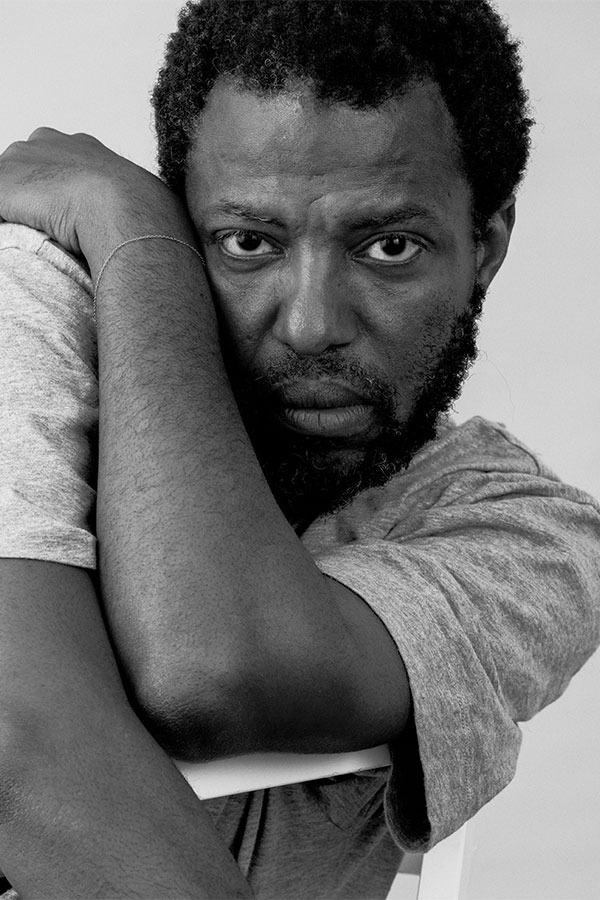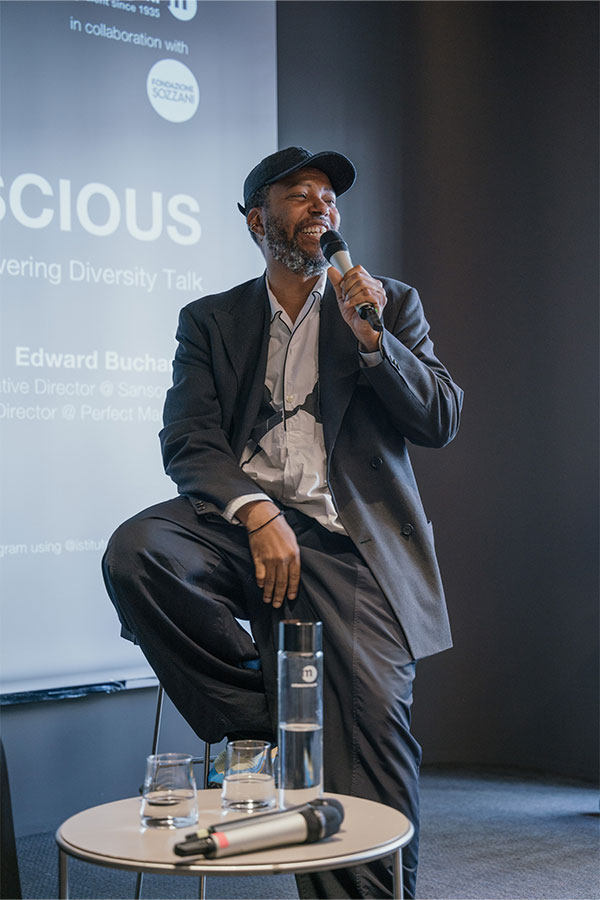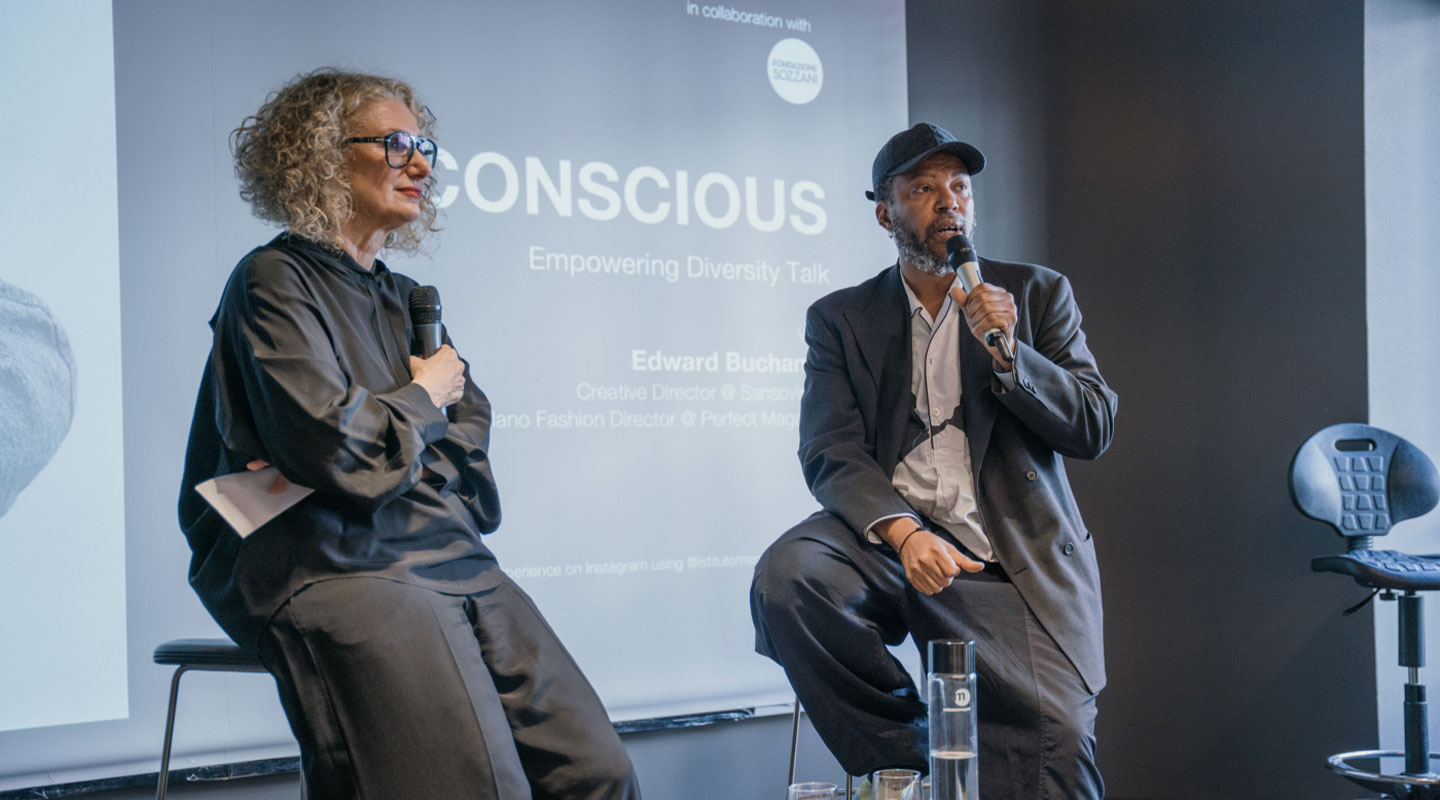Edward Buchanan on crafting a diverse fashion world: What’s still eluding us?







The designer explores inclusivity in fashion, tracing his path from NYC’s multiculturalism to 1990s Italy and today’s evolving representation landscape
Questioning Inclusivity in High-Luxury Brands
Today, many high-luxury brands tout words like “Diverse,” “Gender-fluid,” or “Inclusive,” challenging the notion that one size fits all. But how reliable are these claims? Could they simply be the latest marketing ploy to win over younger generations? Potential answers to these questions might lie in Edward Buchanan’s story.
A Trailblazer in the Fashion Industry
Edward Buchanan, born in Ohio in 1970 and a Milan resident for nearly three decades, has firmly established himself as a heavyweight in the fashion industry. He first came into the spotlight as Director of Design at Bottega Veneta from 1996 to 2001, where he “invented” the brand’s ready-to-wear line and was the creative force behind its inaugural runway shows.

Edward Buchanan
Buchanan’s career is marked by notable achievements, including collaborations with prestigious fashion houses like Max Mara and Agnona under Stefano Pilati and serving as Design Director of Knitwear at Off-White.
In between these phases of his career, he founded Sansovino 6, where he currently serves as Creative Director. The brand has evolved into a pioneering all-knit line, embraced by prominent retailers across Europe, the US, and Japan.
Since 2023, Buchanan has also held the position of Knitwear Designer at Pucci under Camille Miceli’s creative direction, and since 2021, he has been the Milano Fashion Director for Perfect Magazine.
From Ohio to the Heart of Fashion: Defying Luxury Stigmas
When we had the chance to meet him, we discovered that as a Milan-based fashion and knitwear designer with African-American roots, Buchanan has continuously challenged the deep-seated stigmas of the ‘90s fashion scene—and, implicitly, those of the present day. Back then, the industry was stuck in negative conservatism, more concerned with superficial stereotypes than genuine talent.

Edward Buchanan at Istituto Marangoni Milano
“Born and raised in a conservative town in Ohio, I kicked off my fashion career as a window dresser at GAP after studying Fine Arts,” Buchanan shared with us. “From there, I made my way to New York City, drawing sketches for Calvin Klein and rubbing shoulders with Giorgio Armani, J.Crew, and Michael Kors. But despite the glamour and the good money, I yearned for something more.” It was this hunger for authenticity that led him to Italy, where he landed a coveted role at Bottega Veneta.
Navigating the Challenges of 1990s Italy
However, Edward Buchanan’s journey was far from smooth sailing. “Back in the ‘90s, Italy wasn’t the melting pot that NYC prided itself on being (even if only superficially for political correctness). It was a society steeped in tradition, where the idea of an Afro-American man leading a high-luxury brand like Bottega Veneta was met with raised eyebrows,” explained the knitwear specialist.
Watch on TikTok
Buchanan’s tenure at Bottega Veneta was transformative yet tinged with frustration. The brand's organisational culture in the ‘90s had little tolerance for outside influences. “I was often side-lined and overlooked,” he pointed out. “One fashion magazine even omitted my role as Creative Director from Bottega Veneta’s history, despite my tenure and ground-breaking contributions to what today is the brand’s quiet luxury aesthetic.”
Broadening Horizons and Uplifting Marginalised Voices
Despite his personal struggles of being viewed as an “outsider,” Edward Buchanan’s experiences navigating cultural stereotypes and a lack of receptivity to multiculturalism have driven him to broaden his professional horizons.

Edward Buchanan and Fashion Styling and Creative Direction Programme Lader Michela Guasco at Istituto Marangoni Milano
As the Fashion Director Milano at Perfect Magazine, a community-based, independent fashion publication and creative agency, Buchanan gives voice to marginalised groups and individuals left out of mainstream narratives due to differing cultural references.
Collaborating with Katie Grand and Championing Diversity
Reflecting on his journey, he shared, “I worked with stylist Katie Grand (founder of Perfect Magazine, which she launched in 2020) when I was at Bottega Veneta, and we worked very well together. Then, ten years later, I saw her in Ibiza; we had lunch together, and she asked me to join the magazine, giving voices to all those people that do not have voices in other established publications since they are not considered part of the conversations and not part of the ‘making-money’ machine.”
Visualizza questo post su Instagram
Edward Buchanan emphasised the significance of marginalised voices in fostering an inclusive collective, motivating his co-founding of the initiative titled WAMI (We Are Made In Italy) with Michelle Francine Ngonmo and Stella Jean to empower first-generation Afro-Italian designers of colour in accessing and advancing within the fashion industry’s upper echelons.
Exposing the Gaps in Luxury Brand Representation
Concluding with insights into the reliability of diversity and inclusivity claims by high-luxury brands, Buchanan argued that while these labels may showcase diversity externally, the reality within these companies tells a different story.
He pointed out that despite outwardly featuring models of different skin colours, the workforce remains predominantly white, with key positions occupied by straight, white men unwilling to relinquish power to younger, more diverse generations.
Edward emphasised, “So they fake inclusivity at an external level while not being inclusive inside; that is just a lie.” He illustrated this point by stressing the importance of incorporating diverse, culturally-informed business models to truly resonate with global consumers. As he succinctly stated, “If you want a collection inspired by Senegal, you need Senegalese workers.”
Diletta Moschella
MA in Fashion Promotion, Communication & Digital Media, Milan



